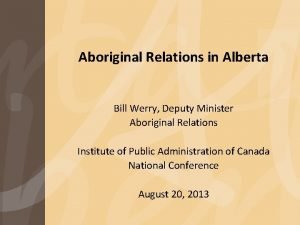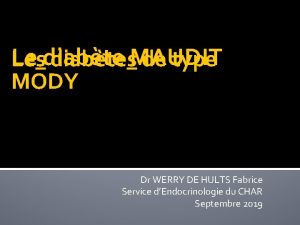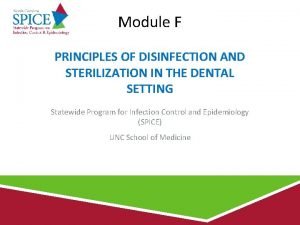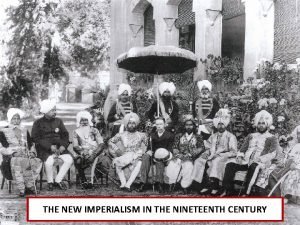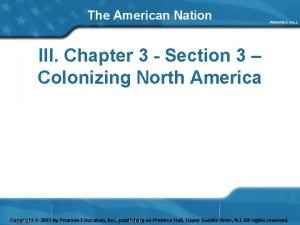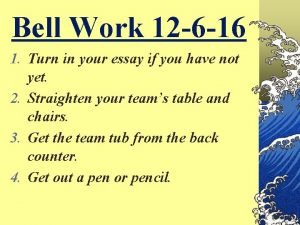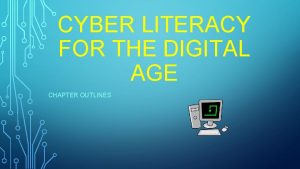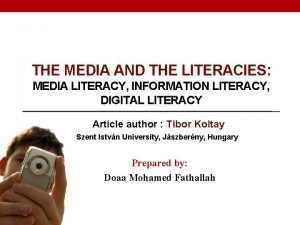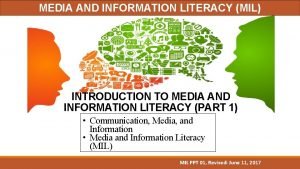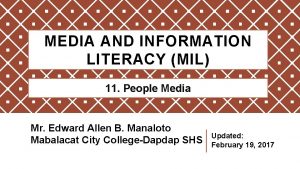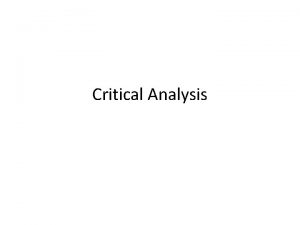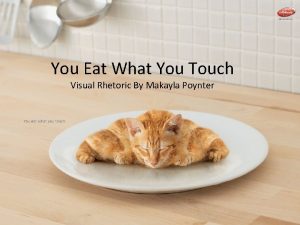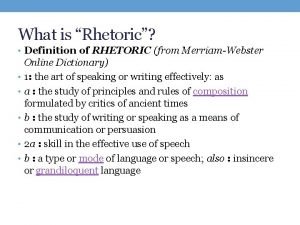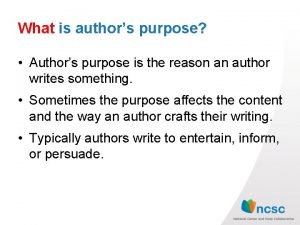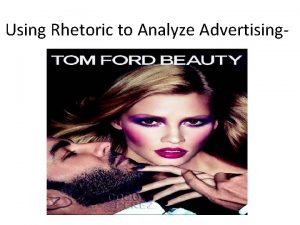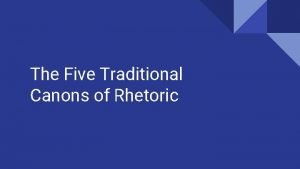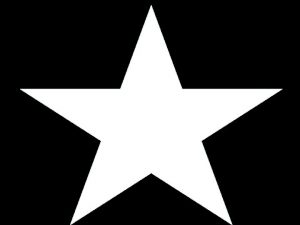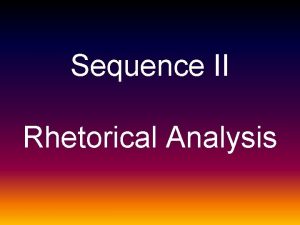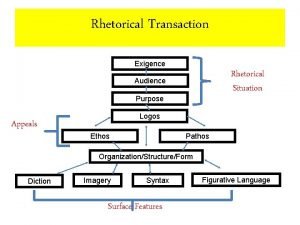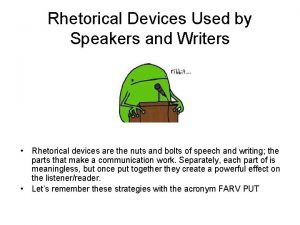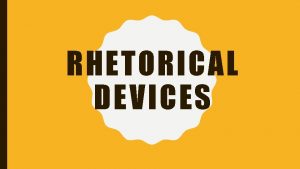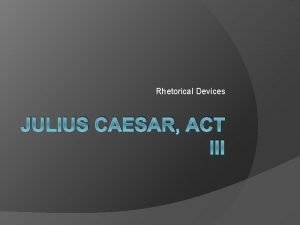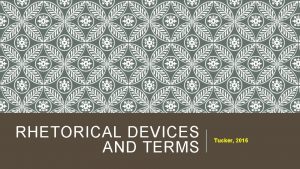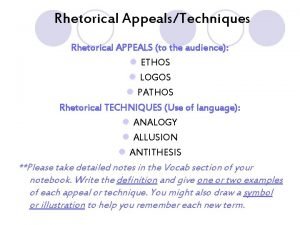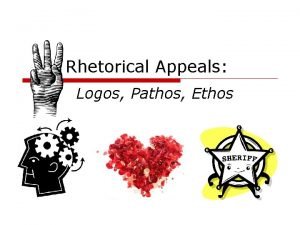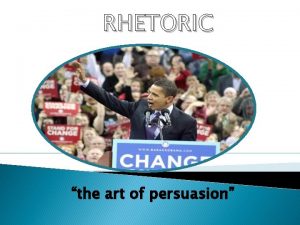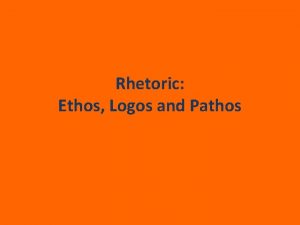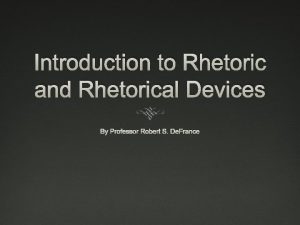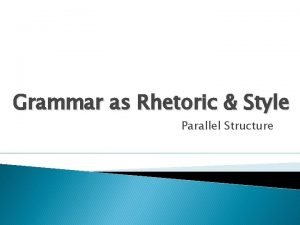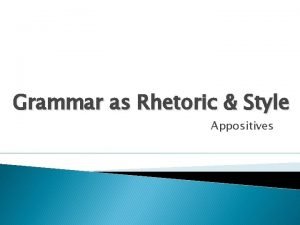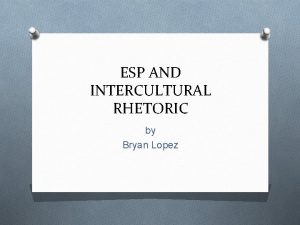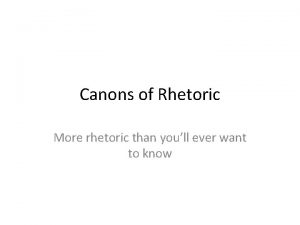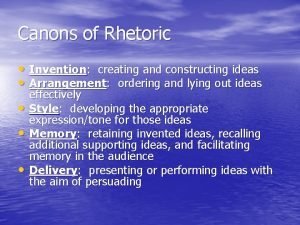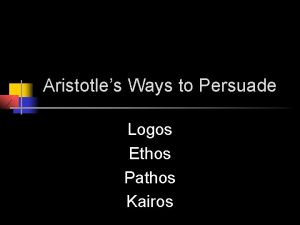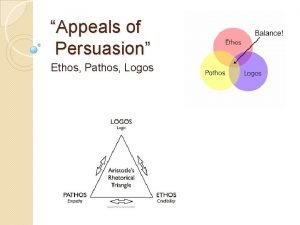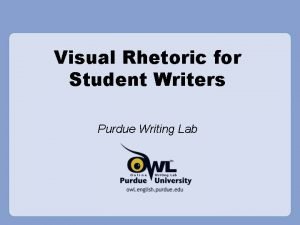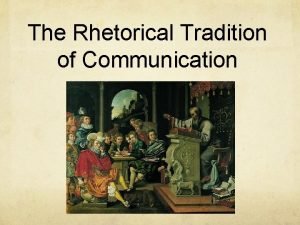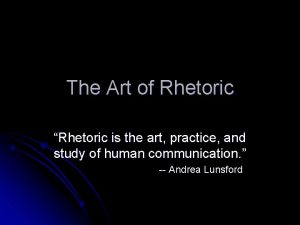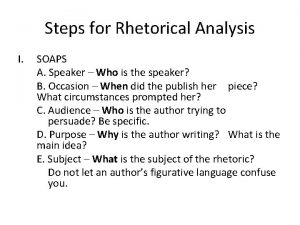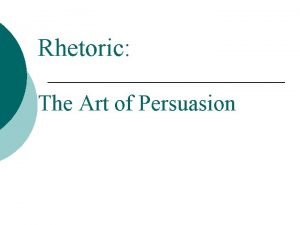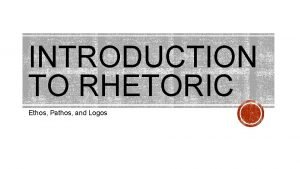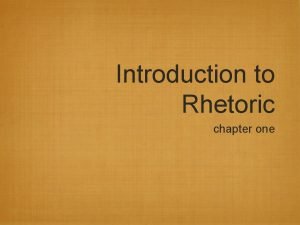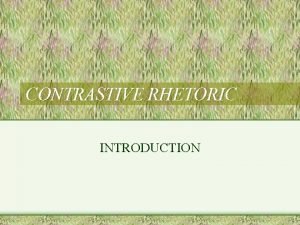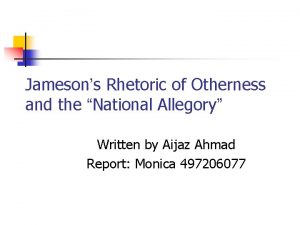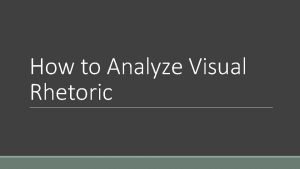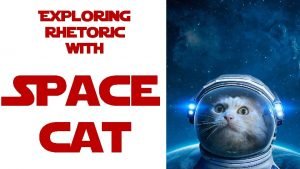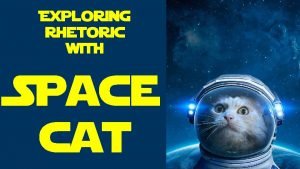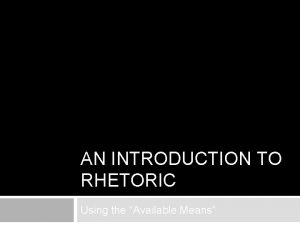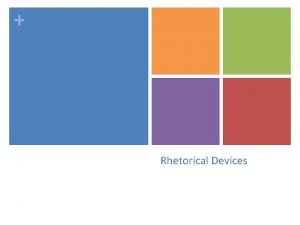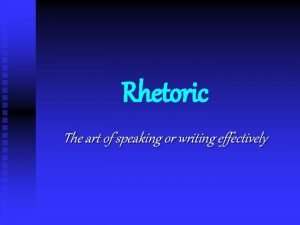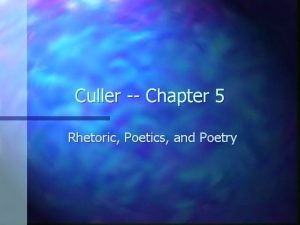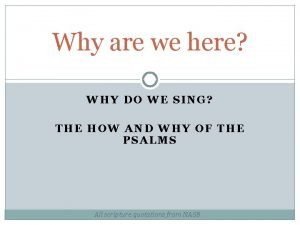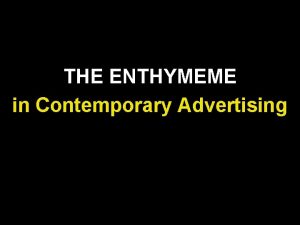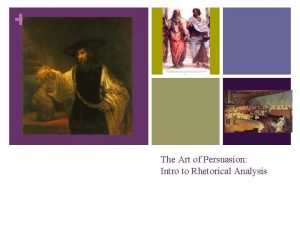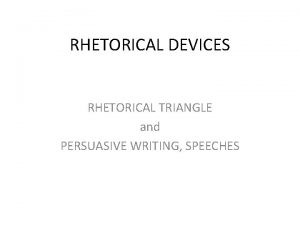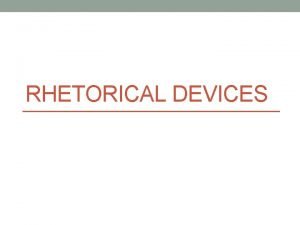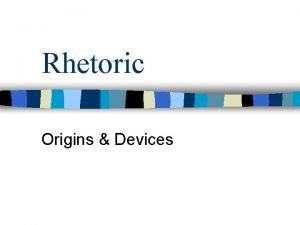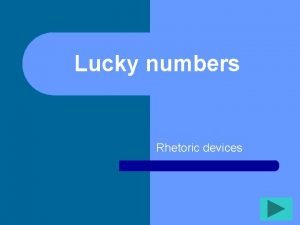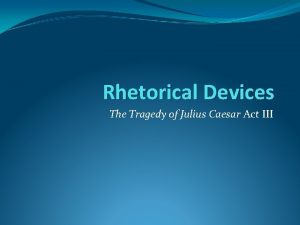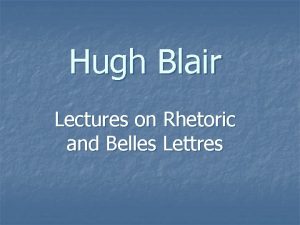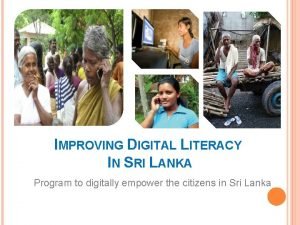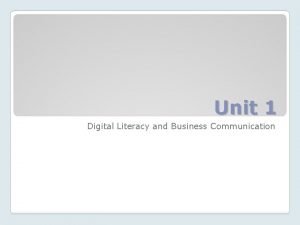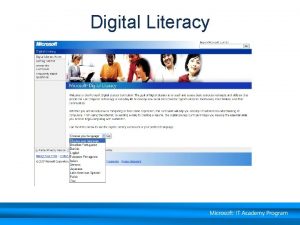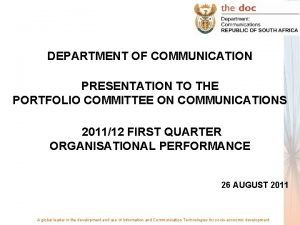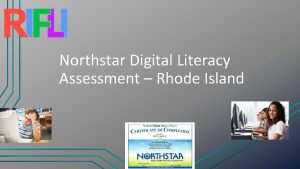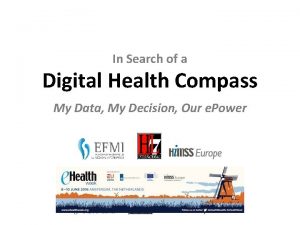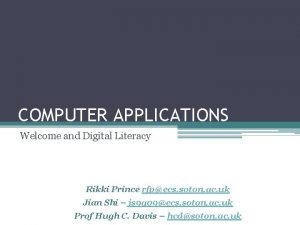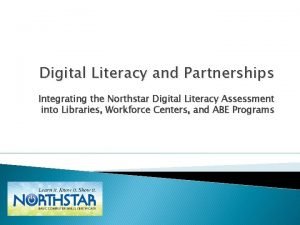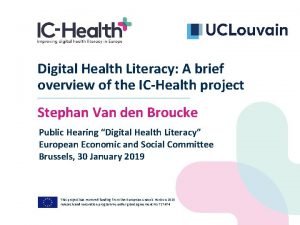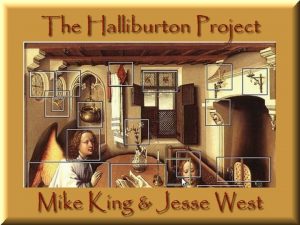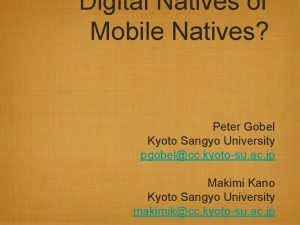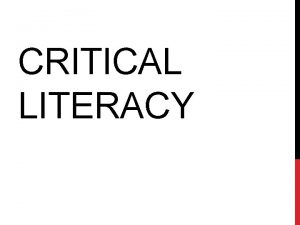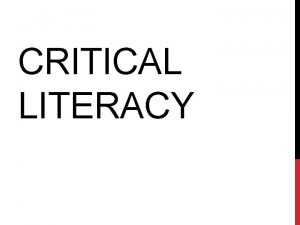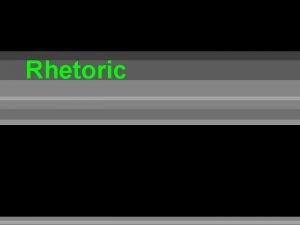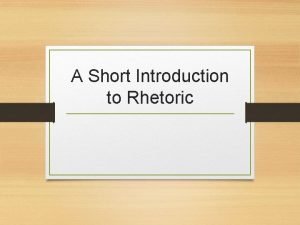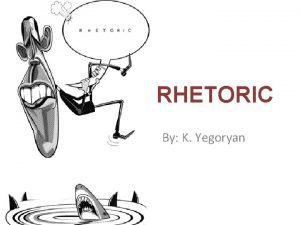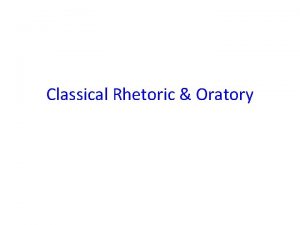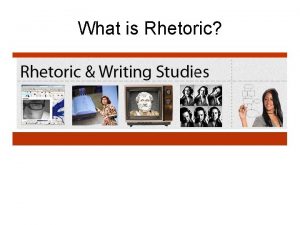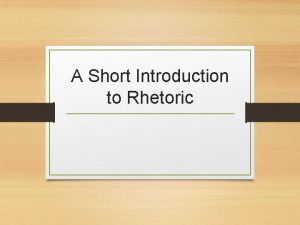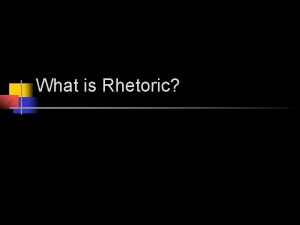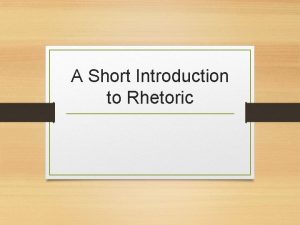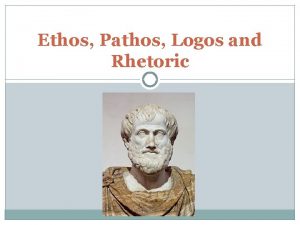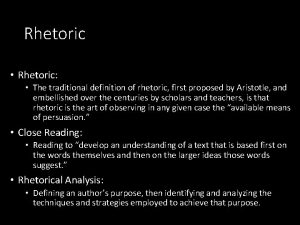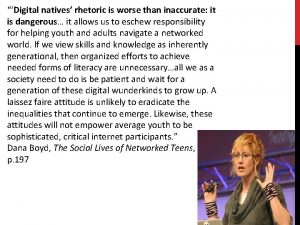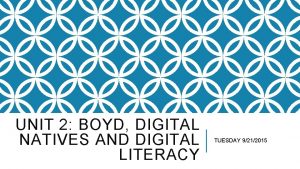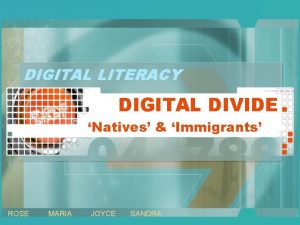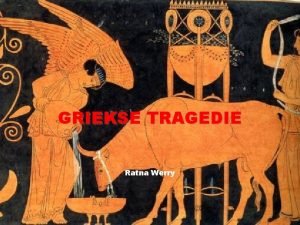Digital Natives Critical Digital Literacy Chris Werry Rhetoric














































































- Slides: 78

Digital Natives & Critical Digital Literacy Chris Werry, Rhetoric & Writing Studies

The 2000 s: Digital Utopianism

"We are in the midst of a literacy revolution the likes of which we haven't seen since Greek civilization. " (Andrea Lunsford, 2007) “Today’s classroom is the web itself, and it’s a classroom of seamless transfer of information, of collaborative, individualized learning, and of active participation by all members of class. ” (Will Richardson, 2008) “ 21 st Century Writing marks the beginning of a new era in literacy, a period we might call the age of composition. ” (Kathi Yancey, 2009)

Rhetoric of the Digital Native Marc Prensky’s “digital natives” and “digital immigrants” is widely adopted by writers, journalists, policy makers and some scholars. “Today’s students think and process information fundamentally differently from their predecessors. ” (Prensky, “Digital Natives, Digital Immigrants, ” 2001. ) This concept becomes a central part of definitions of digital literacy.

• Hargittai and Hinnant, "Digital Inequality: Differences in Young Adults' Use of the Internet” • Mapping the Writing Lives of First-Year College Students, Jeff Grabill and Stacey Pigg. • “The ERIAL Project: Ethnographic Research in Illinois Academic Libraries” • Atkins and Reilly, “The Impact of Resource-poor Techno-ecologies on Student Technology Use”

• “The prevalence of Google in student research is welldocumented, but Illinois researchers found…students were not very good at using Google. They were basically clueless about the logic underlying how the search engine organizes & displays its results. ” (Kolowich “What Students Don't Know”) • “Duke and Asher were surprised by the extent to which students appeared to lack even some of the most basic information literacy skills that we assumed they would have mastered in high school. ” *“What Students Don't Know, ” Steve Kolowich, Inside Higher Education, August 22, 2011

In Google we trust? • Pan et al. secretly altered the search results students received, putting low ranked results at the top. Most students appeared to use these results, anyway, trusting the ranking given. “In Google We Trust: Users’ Decisions on Rank, Position, and Relevance. ” Bing Pan et al.

A New (Digital) Literacy Crisis? “In the 1950 s critics pondered, ‘Why Johnny Can’t Read. ’ Now they should ponder ‘Why Johnny Can’t Search. ’ Whose fault is that? Not the students. If they’re unable to navigate online information it’s because, rather amazingly, they’re almost never taught search literacy in schools. ” (Thompson, Smarter Than You Think, p. 205. )

“‘Digital natives’ rhetoric is worse than inaccurate: it is dangerous… it allows us to eschew responsibility for helping youth and adults navigate a networked world. If we view skills and knowledge as inherently generational, then organized efforts to achieve needed forms of literacy are unnecessary…all we as a society need to do is be patient and wait for a generation of these digital wunderkinds to grow up. A laissez faire attitude is unlikely to eradicate the inequalities that continue to emerge. Likewise, these attitudes will not empower average youth to be sophisticated, critical internet participants. ” Dana Boyd, The Social Lives of Networked Teens, p. 197

SDSU CTL Digital Humanities Mapping Digital Literacies & Piloting Critical Digital Literacy Instruction in GE Writing Courses Chris Werry, Rhetoric & Writing Studies Project Overview • Mapping students’ digital literacy practices, attitudes and skills • Data was collected from students in first year writing classes, and from students in an upper division RWS course who possess “advanced” digital literacy skills. • Guide the integration of critical digital literacy skills into writing classes, and create teaching materials

SDSU CTL Mapping Digital Literacies & Piloting Critical Digital Literacy Instruction in RWS Writing Courses Digital Humanities Research Questions 1. What are students’ most common forms of engagement with social media resources? Which digital resources are students using most often to read, write, socialize and interact? 2. What purposes, attitudes and assumptions accompany students’ use of social media resources? 3. To what extent are our students’ digital literacy practices similar to those documented in recent research studies? 4. When we compare first year students’ use of social media with those of more experienced, “sophisticated, ” upper division undergraduate students, what is seen? 5. Definitions of digital literacy often include the ability to search, store, tag, annotate, network, curate and analyze texts. To what extent do our students show facility with these skills? 6. Do our students’ uses of new media present “bridging” opportunities, ways of leveraging existing practices in order to support key academic writing/reading/research/thinking skills?

Q 3: Specify Ethnicity Answered: 86 Powered by Skipped: 0

Powered by

Q 5: At university, when taking notes in class, do you mostly take a) handwritten lecture notes or b) use a computer? Answered: 84 Powered by Skipped: 2

SDSU CTL Digital Humanities Mapping Digital Literacies & Piloting Critical Digital Literacy Instruction in GE Writing Courses

Q 11: When you read news stories online, what is the most common way you access them (e. g. via a Facebook link, Instagram, Yahoo, email, visiting a news site like CNN, some other site. ) Powered by

Q 31: When you are searching and surfing web pages, for fun or as part of school, how do you store and organize links to what you find so you can go back and retrieve them later? Powered by

Q 33: If you do take notes on the web pages you find, how do you do this? Answered: 86 Powered by Skipped: 0

Powered by

Q 23: Did you know you can search web 85 pages Answered: Skipped: 1 by date range Powered by

Powered by

Q 27: Do you know how to search by image? Answered: 85 Powered by Skipped: 1

Q 28: Do you know to search where an image comes from? Answered: 86 Powered by Skipped: 0

Q 29: Do you know how to search for images that are copyright free? Answered: 86 Powered by Skipped: 0

Q 40: Have you ever been taught how to evaluate the credibility or reliability of a web page? Answered: 85 Powered by Skipped: 1

Q 56: As part of their undergraduate experience, do you think new students should be given instruction in how to use digital tools to search, navigate, research, evaluate, bookmark and annotate sites/online texts? Powered by

SDSU CTL Mapping Digital Literacies & Piloting Critical Digital Literacy Instruction in RWS Writing Courses Digital Humanities Sample Findings • First year students use a small number of social media tools and services often, but rarely use most other tools and services (this contrasts with more experienced, “power users. ”) • Texting, Facebook, Instagram, You. Tube and Snapchat are (at present) by far the most commonly used social media services. A smaller number use Twitter, Tumblr and Reddit • Most students prefer to take hand written lecture notes, despite ~95% owning a laptop

SDSU CTL Mapping Digital Literacies & Piloting Critical Digital Literacy Instruction in RWS Writing Courses Digital Humanities Sample Findings • First year students far less frequently blog, create content for wikis, post comments to web sites, compose fan fiction, read or contribute to newsgroups/listservs, create web sites, videos or music. • Most first year students have limited knowledge of key digital literacy skills such as search, annotation, tagging, bookmarking, curation, web site analysis, web genre knowledge, etc. In this regard SDSU students resemble other students their age in comparable academic institutions.

SDSU CTL Mapping Digital Literacies & Piloting Critical Digital Literacy Instruction in GE Writing Courses Digital Humanities Sample Findings • SDSU students who are older, more sophisticated “power” users of digital media are more skilled in their understanding of web genres, search literacy, and their ability to tag, store and curate material that they can use later in their writing and research. • They are more adept at gaining information from social networks, and at finding ways of “bridging” their personal and academic use of social media tools and resources. • For example, they are more likely to use sites such as Reddit, which host some academic communities and conversations, and use such sites as part of their academic work.

SDSU CTL Digital Humanities The 8 Habits of Highly Effective (Digital) Students 1. Contextual/Rhetorical knowledge (knowledge of online genres, conventions, technical formats, etc. ) 2. Search – from basics, to advanced search, to “reflexive search, ” and “social search” 3. Annotate, capture and store digital text 4. Tag, sort, archive and curate (read to write, research, contribute and publish) 5. Analyze, interpret, evaluate, interrogate, and triangulate (rhetorical knowledge) 6. Network – map, visualize, cultivate connections 7. Stream, feed, filter, follow and collaborate 8. Manage Personal Learning Networks

SDSU CTL Digital Humanities Sample Findings • When first year SDSU students do engage in some more “advanced” digital literacy practices, such as creating content for a blog or wiki, this is not usually self-sponsored. Rather, it is usually because it was required by a teacher. • First year students access news stories primarily through Facebook (40. 7%), news aggregator sites such as Yahoo News or Google News (23. 26%) or a specialized news site such as CNN or BBC (20. 9%).


SDSU CTL Digital Humanities Sample Findings • FY students do not appear to have effective strategies for annotation, retrieval & curation of materials they find online. For example, most use “stand alone” bookmarks. Many paste useful links into MS Word, and some even hand write web addresses on paper. Students do not seem to have many effective strategies for “reading to write” online. This could be addressed in several RWS 100 assignments.

SDSU CTL Digital Humanities Sample Findings When asked how the most common forms of online activity they engage in connect to their academic work, students had three main responses: 1. 2. 3. They see no connection between their experiences online and their academic work. They feel it is helpful for coordinating academic work activities, connecting with others, collaborating with other students, and discussing classes and university life as a kind of “backchannel. ” They see reading and writing online, and participating in digital environments as useful for acquiring literacy skills and social skills that are broadly relevant to their academic lives. (Responses #2 and #3 appear more common amongst older, more “sophisticated” users of digital media. )

SDSU CTL Digital Humanities Sample Findings • Half our students feel they are not equipped to evaluate the credibility of web pages, and most students have limited knowledge of how to use the advanced functions on search engines and specialized tools such as google scholar. • Most students (87%) say undergraduate education should include instruction in how to use digital tools to search, navigate, research, evaluate, bookmark and annotate sites and texts.

SDSU CTL Digital Humanities Comparing results to other studies • Compared to results from recent studies that contrast digital literacy practices across institution types (for example Michigan’s “Writing in Digital Environments: The Writing Lives of College Students”) SDSU students appear to resemble students at M. A. granting state universities and students at Research universities. The resemblance to the latter may be due to the assignments faculty give students that require particular kinds of engagement with new media, rather than self-sponsored student activity.

SDSU CTL Digital Humanities Sample Findings ■ This pilot survey confirms some of the “limitations” in student digital literacy identifiable in recent studies and reports with respect to search, annotation, curation, etc. However, preliminary results suggest that these limitations may be as much a function of limited rhetorical knowledge, limited knowledge of print and web genres, and lack of background knowledge often assumed of “digital natives. ” They also appear a function of students not being explicitly taught these skills in their earlier education.

SDSU CTL Digital Humanities Mapping Digital Literacies & Piloting Critical Digital Literacy Instruction in GE Writing Courses Chris Werry, Rhetoric & Writing Studies Online Teaching Materials For Critical Digital Literacy We developed a template wiki containing tools and resources writing teachers can use to teach critical digital literacy. This platform can be duplicated so a group of teachers can use the same resources. The modules include material on search literacy, site/author evaluation, rhetorical analysis of web pages, social bookmarking, tagging, annotation, and the curation of online materials for writing and research projects.

SDSU CTL Digital Humanities Integrating Critical Digital Literacy Into GE Writing Courses Excerpts from the Search Literacy Module Chris Werry, Rhetoric & Writing Studies

SDSU CTL Digital Humanities Example: search literacy • Search skills as technical capabilities, but also • Fun and interesting • A space of inquiry and creativity • A way of analyzing texts and posing critical questions • A way of assessing credibility • “Reflexive” – students should reflect on the way they use search, and on how data from search results can be used

Becoming a search ninja • You can search by site, date range, exact words in a phrase, file type, “exclusions, ” etc.


The “Cited By” link

Reflecting on Your Search Strategy • How did you do it? • Describe the search engine you used • What terms did you enter? Why? • How many results did you receive? • How far did you look (past the first page? ) • What kind of results did you get? • What did you select, and why?

Beyond Basic Search • What are some “sophisticated” ways of using google (and similar search engines) for research purposes? • Did you know that you can do a kind of meta-search, or “search people’s searches” in order to create data of your own that can be used in your papers? • “Google trends” – can be used to help identify flu outbreaks, purchase patterns, social trends, etc. Consider Stephens-Davidowitz’s work on google searches mentioning child abuse. https: //www. google. com/trends/

Ngram Viewer • Google Ngram viewer lets you search the frequency of words in books. https: //books. google. com/ngrams • This can also be used for various kinds of research. Consider, for example, what this search of books for the term “vampire” suggests:


Google Trends data from February 2014 to February 2015 Top U. S. Searches 2014 Top 2014 Searches by State

Patterns in searches for drugs (Adderall increases during finals weeks)

Stephens-Davidowitz: using Google Trends for Social Analysis • From 2006 to 2009, the number of cases [of child abuse] reported to child protective services decreased by 1 percent nationally. Remarkably, the biggest drops were in the states hardest hit by the recession. • “The first clue that the official statistics were misleading comes from looking at the most extreme forms of abuse and neglect, which are least susceptible to reporting pressures: child-fatality rates. During the downturn, there was a comparative increase in these rates in states that were hardest hit by the recession. From 2006 to 2009, Nevada’s fatality rate from abuse or neglect rose 50 percent. ”

Searching Google searches • “But child fatalities are, thankfully, rare. I also used a novel technique for studying child maltreatment: an analysis of anonymous, aggregate Google searches. ” These searches included “My dad hit me” or “Why did my father beat me? ” • I also examined a more common class of Google queries: those that include the words “child abuse” or “child neglect. ” In some sense, this Google data is like a survey of how many people suspected child maltreatment at a given time.





Using search to pose critical questions and assess credibility. Places to start: • Search who created and owns a site and when was it registered (https: //whois. icann. org) • Search for the Google page rank • Search who links to a site (http: //tools. seochat. com/) • Search external links (who/where a site links to) • Search the history of a site and the changes made to it over time (http: //archive. org)



GIBill. com now redirects to Veteran’s Affairs

• Digital Literacy Materials • As an exercise in digital literacy you could look at the site GIBill. com. This was a site set up by a group of for-profit colleges designed to persuade veterans to enroll in forprofit schools. It was shut down by the federal government as it was deemed to be a deceptive site that tricked veterans into thinking it was organized by the government, and was primarily informational and educational. The site has now been replaced by this message:



Archive. org – search the web’s past, analyze changes, create collections of content

“Case Studies: Scrubbing” the Web – Malaysian Airlines Flight 17 • “We just downed a plane” (posted by Strelkov to Russian social media site. Malaysia Airlines Flight 17 was shot down on July 17, 2014, on a field outside Donetsk, Ukraine. ) • “On July 17 th, at 3: 22 P. M. G. M. T. , the Wayback Machine saved a screenshot of Strelkov’s VKontakte [Russian separatist] post about downing a plane. Two hours and twenty-two minutes later, Arthur Bright, the Europe editor of the Christian Science Monitor, tweeted a picture of the screenshot, along with the message “Grab of Donetsk militant Strelkov’s claim of downing what appears to have been MH 17. ” By then, Strelkov’s VKontakte page had already been edited: the claim about shooting down a plane was deleted. The only real evidence of the original claim lies in the Wayback Machine. ” (Lepore)

Searching Internet Archive for web sites that have been deleted (& fact check claims)

Social Search • WOT (web of trust tool – crowdsourced ratings and comments on websites) • Locate the web sites, listservs, groups, mailing lists, or blogs for organizations related to your area of study, profession, or work interests. • Search these resources or use this community to “filter” your inquiries.



Resources • “Students must learn to evaluate the origins, authorship, history, accuracy, objectivity, completeness, currency and relevance of every digital document they encounter; they must learn to notice and see through slick graphic design…There is little doubt that ‘triangulation’ is the future of information seeking. ” Pegrum, “Social Media & Digital Literacies” • “Triangulation is what detectives do – try to find three different ways to test a source’s credibility. For example, you could google the author’s name, enter the author’s name in the scholarly productivity index, and use the literacy resources at factchecked. org to triangulate a source. ” Rheingold, “Crap Detection 101” • “Framework for Information Literacy for Higher Education, ” Association of College & Research Libraries (ACRL).

• Print literacy remains a core literacy, offline and online – the ability to “write eloquently, communicate clearly and argue persuasively – is essential to hold your readers’ attention in a web article, present yourself authentically on a blog, or carry a point in a controversial Wikipedia entry. ” (Pegrum). • Advancing critical digital literacy does not require an entirely new set of skills. Many skills transfer. We do need to teach new online genres, and help students how see knowledge is created, shared and authorized in a variety of online contexts.

SDSU CTL Digital Humanities The 8 Habits of Highly Effective (Digital) Students 1. Contextual/Rhetorical knowledge (knowledge of online genres, conventions, technical formats, etc. ) 2. Search – from basics, to advanced search, to “reflexive search, ” and “social search” 3. Annotate, capture and store digital text 4. Tag, sort, archive and curate (read to write, research, contribute and publish) 5. Analyze, interpret, evaluate, interrogate, and triangulate (rhetorical knowledge) 6. Network – map, visualize, cultivate connections 7. Stream, feed, filter, follow and collaborate 8. Manage Personal Learning Networks

• “Given the lack of formal gatekeepers and the diversity of content and authors, it’s often hard to determine credibility online. Because youth do not learn to critically assess the quality of information they access, they simply look for the new intermediaries who can help them determine what’s valuable. For better or for worse, they take Google’s results for granted while also dismissing high-quality content from other sites that they have been taught to distrust, Like their parents, they assume Google is neutral and that sites like Wikipedia have dubious information. ” (Boyd, “Are Today’s Youth Digital Natives? ” 186).

• Need teach how to understand major web genres such as wikipedia; see Boyd. How to look behind the scenes – history, the debates. PLUS KNOWLEDGE of what it is good at; nature of the knowledge (argument vs. writing by committee. • TEACH REFLEXIVITY and rhetorical understanding. • Teach production-based skills • Need teaching platforms and tools to help with this. Eg our wiki, and plan to create modules.

• Wikipedia and reflexivity. • Wikipedia reveals the process of knowledge production, the community norms and debate that go into creating an entry. • The edit history page; the discussion page (debates surrounding an article). • “Wikipedia provides an ideal context for engaging youth to interrogate their sources and understand how information is produced. ” Body, 191.

Resources for assessing credibility • There are online resources for assessing credibility. Rheingold’s “Crap Detection” files (by field: politics, medicine, journalism, etc. ) • Organizations such as HASTAC, etc. • There are web tools that help investigate credibility (pagerank, whois. icann. org, archive. org, etc) • There are “rules of thumb” for examining web pages.

• But if we are to cultivate sophisticated forms of critical digital literacy, these won’t be enough. • Teachers already provide students with skills relevant to CDL. We just need to revise, supplement and integrate these skills. • Critical thinking and rhetorical understanding are important parts of CDL. • The Association of College & Research Libraries “Framework for Information Literacy” has moved in this direction – from “skills” to rhetorical and critical analysis.

• • Web genres Reflexive knowledge Rhetorical analysis Teaching tools and platforms that support our pedagogies

• “Unless we scholars are involved in designing the working environments of our digital future, we will find ourselves in a future that doesn't work, without the methods and materials essential to our undertakings. . . Nothing less than the way we understand knowledge and our tasks as scholars are at stake” Johanna Drucker. • “The learning management system has done exactly what we hired it to do: it has reinforced, facilitated, and perpetuated the traditional classroom model. ” Jonathan Mott
 Bill werry
Bill werry Diabete maudit
Diabete maudit Critical semi critical and non critical instruments
Critical semi critical and non critical instruments Principle of sterilization
Principle of sterilization Natives of new zealand
Natives of new zealand Was henry hudson killed by natives
Was henry hudson killed by natives The natives
The natives Cyber literacy and digital literacy
Cyber literacy and digital literacy Venn diagram of media information and technology literacy
Venn diagram of media information and technology literacy Communication media and information venn diagram
Communication media and information venn diagram Lower end media users examples
Lower end media users examples Slidetodoc.com
Slidetodoc.com You eat what you touch
You eat what you touch What is rhetoric
What is rhetoric What is the author's claim in this passage
What is the author's claim in this passage What is rhetoric
What is rhetoric 3 types of rhetoric
3 types of rhetoric Canons of rhetoric
Canons of rhetoric Ethos
Ethos Cicero rhetorical devices
Cicero rhetorical devices Exigence rhetoric
Exigence rhetoric Rhetorical devices
Rhetorical devices Rhetorical devices
Rhetorical devices Literary devices in julius caesar
Literary devices in julius caesar Alliteration definition
Alliteration definition Ethos advertisement examples
Ethos advertisement examples Ethos, pathos, logos
Ethos, pathos, logos Rhetoric: the art of persuasive writing and public speaking
Rhetoric: the art of persuasive writing and public speaking Ethos
Ethos Ethos oathos and logos
Ethos oathos and logos Anadipolis
Anadipolis Parallel grammar structure
Parallel grammar structure Grammar as rhetoric and style exercise 1 answers
Grammar as rhetoric and style exercise 1 answers Branches of rhetoric
Branches of rhetoric Canon of rhetoric
Canon of rhetoric Canons of rhetoric
Canons of rhetoric Pathos logos ethos kairos
Pathos logos ethos kairos Detente apush
Detente apush Ethos pathos and logos
Ethos pathos and logos Rhetorical triangle
Rhetorical triangle Purdue owl visual rhetoric
Purdue owl visual rhetoric Rhetoric tradition of communication
Rhetoric tradition of communication Rhetoric is the art of
Rhetoric is the art of Soaps rhetoric
Soaps rhetoric Rhetoric the art of persuasion
Rhetoric the art of persuasion Juxtaposition stylistic device
Juxtaposition stylistic device Logos rhetoric definition
Logos rhetoric definition How is rhetoric defined in this chapter?
How is rhetoric defined in this chapter? Contrastive rhetoric definition
Contrastive rhetoric definition American rhetoric 100 speeches
American rhetoric 100 speeches Aijaz ahmad jameson's rhetoric of otherness summary
Aijaz ahmad jameson's rhetoric of otherness summary Analyzing visual rhetoric
Analyzing visual rhetoric What does exigence mean in spacecat
What does exigence mean in spacecat Space cat ap lang example
Space cat ap lang example Introducing rhetoric using the available means
Introducing rhetoric using the available means Rhetoric
Rhetoric Enumeration rhetorical device
Enumeration rhetorical device The art of speaking or writing effectively is called
The art of speaking or writing effectively is called Poetry vs rhetoric
Poetry vs rhetoric Rhetoric poetry
Rhetoric poetry Enthymemes in advertising
Enthymemes in advertising Exigence rhetoric
Exigence rhetoric Ethos pathos logos
Ethos pathos logos Parallelism literary device
Parallelism literary device Plato persuasive appeal
Plato persuasive appeal Aristotle rhetoric
Aristotle rhetoric The migration of darkness analysis
The migration of darkness analysis Pick it up rhetoric
Pick it up rhetoric Paradox rhetorical device
Paradox rhetorical device Hugh blair lectures on rhetoric
Hugh blair lectures on rhetoric Computer literacy in sri lanka
Computer literacy in sri lanka Red delicious% apple
Red delicious% apple Digital literacy standard curriculum version 4
Digital literacy standard curriculum version 4 Nemisa dbe digital literacy application
Nemisa dbe digital literacy application Digitalliteracyassessment
Digitalliteracyassessment Digital literacy
Digital literacy Digital engineer
Digital engineer Northstar digital literacy
Northstar digital literacy Digital health literacy
Digital health literacy
